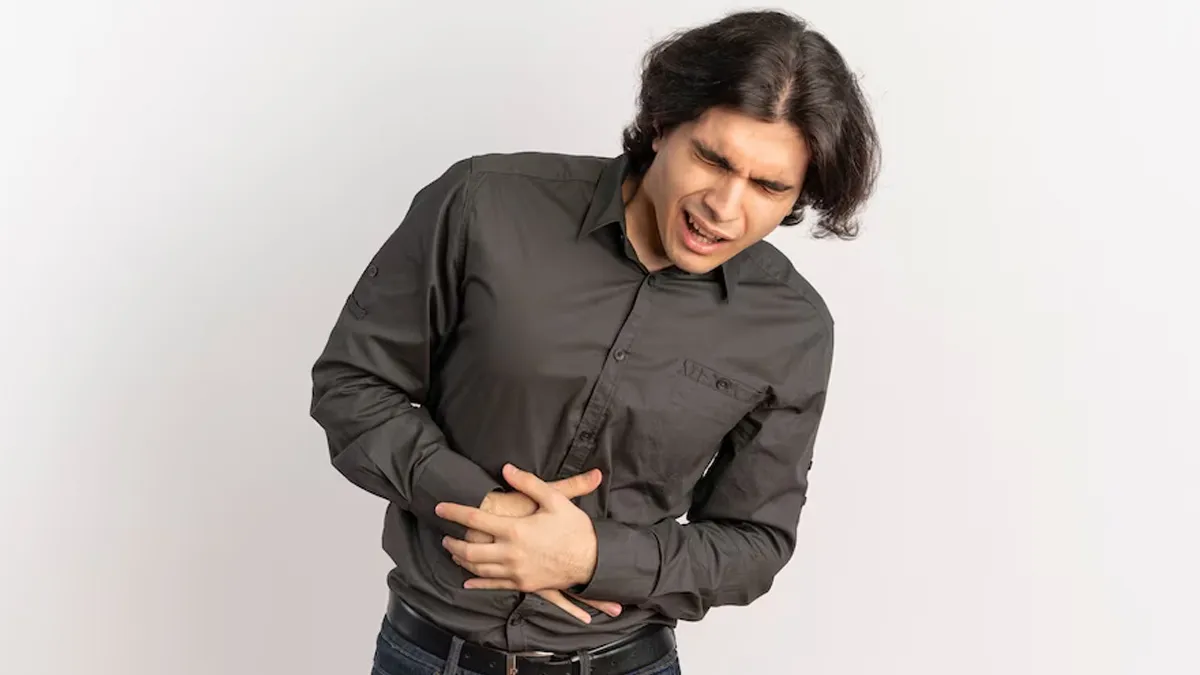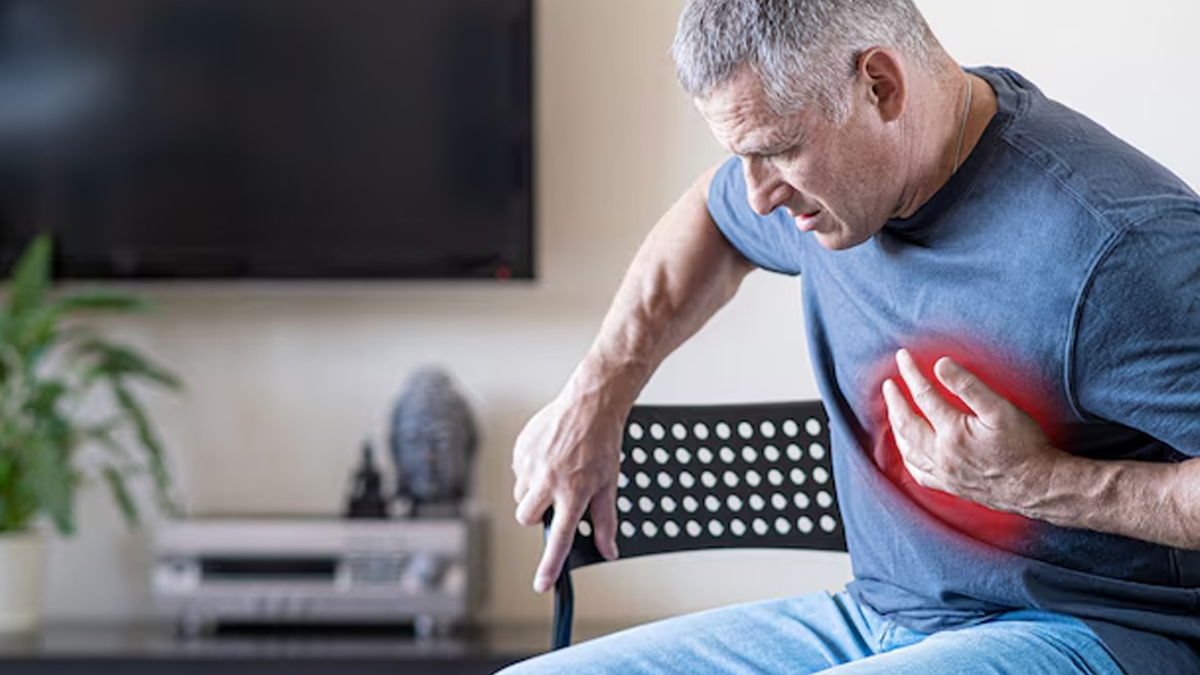
Trapped gas in the stomach can lead to various issues, including bloating and pain. There can be a dull ache and/or pressure in the abdominal area that can sometimes cause flatulence, or in layman’s terms, make you fart.
Table of Content:-
However, gas pain can occur due to many reasons. Sometimes, it is just because of something you ate, or it can be caused by an underlying issue. Regardless of what the cause may be, it is crucial to recognise the underlying cause and receive proper treatment.
Also Read: Heart Attack And Gas: How To Distinguish Between The Two
What Gas Pain Feels Like?

According to Dr Naresh Bhat, Chief of Gastroenterology, Aster CMI Hospital, Bengaluru, gas pain can feel like a tight, cramp-like sensation in the abdomen, often accompanied by abdominal swelling or bloating and the passing of gas.
Serious conditions, however, may present with additional symptoms of persistent abdominal pain, fever, vomiting, or changes in bowel habits.
Research suggests that nearly 18% of the global population report bloating and gas at least once a week. This is more common in women and less common in older people.
Could Your Dietary Choices Cause Gas?

In most cases, temporary episodes of gas and associated pain and bloating occur due to unhealthy dietary choices. According to Medical News Today, foods and beverages like beans, wheat, onions, dairy products, alcohol, carbonated drinks, and fatty foods may cause gas.
Gas occurs when people swallow air and when the body breaks down food in the digestive tract. This can also lead to burping, feeling bloated, or flatulence.
Dr Bhat attributes these symptoms to the consumption of high-fibre foods, carbonated beverages, and other leguminous foods. He adds that alarming symptoms like acute abdominal pain, persistent swelling, or disturbance in bowel habits may develop alongside, which could allude to inherent conditions requiring medical intervention.
What Are The Underlying Issues For Gas Pain?
While diet plays a major role in maintaining digestive health, underlying gastrointestinal conditions like Irritable Bowel Syndrome (IBS) or peptic ulcers can also disrupt gut health. Gas pain and bloating are common symptoms reported by 90% of IBS patients, as reported in a study published in the journal Gastroenterology and Hepatology from Bed to Bench.
Additionally, excess gas can also be a symptom of chronic intestinal conditions, such as diverticulitis, ulcerative colitis, or Crohn's disease, according to the Mayo Clinic.
Individuals experiencing such pain must consider consulting physicians to rule out or confirm any serious gastrointestinal concerns, advises Dr Bhat, adding that understanding the connection between gas pain and such digestive conditions is important for effective diagnosis and treatment.
Also Read: Relieve Period Gas Pain: Simple Tips To Feel Better During Menstruation
When Does Gas Pain Indicate A Heart Problem?

Interestingly, gas pain can sometimes indicate a heart issue.
“Individuals are recommended to observe certain features of the pain, such as its localisation, intensity, and duration. Symptoms do include cramping within the abdomen that usually improves with gas passage or bowel movement. However, if the exhibited pain is in the upper abdomen region or it spreads to the chest, shoulder, or back, it may call for further examination,” Dr Bhat notes.
Other symptoms signalling a heart problem include nausea, vomiting, shortness of breath, or sweating. These are the initial hints of possibly more serious conditions involving the heart or gallbladder in association with the abdominal pain.
Bottomline
Gas pain can be discomforting, more so if it lasts longer than a few hours. While your food choices could be blamed, persistent bloating and gas accompanied by other concerning symptoms can indicate underlying gastrointestinal problems. In some people, gas pain could also be an early sign of heart problems, which is why consulting a doctor may help with early detection of any life-threatening circumstances.
Also watch this video
How we keep this article up to date:
We work with experts and keep a close eye on the latest in health and wellness. Whenever there is a new research or helpful information, we update our articles with accurate and useful advice.
Current Version